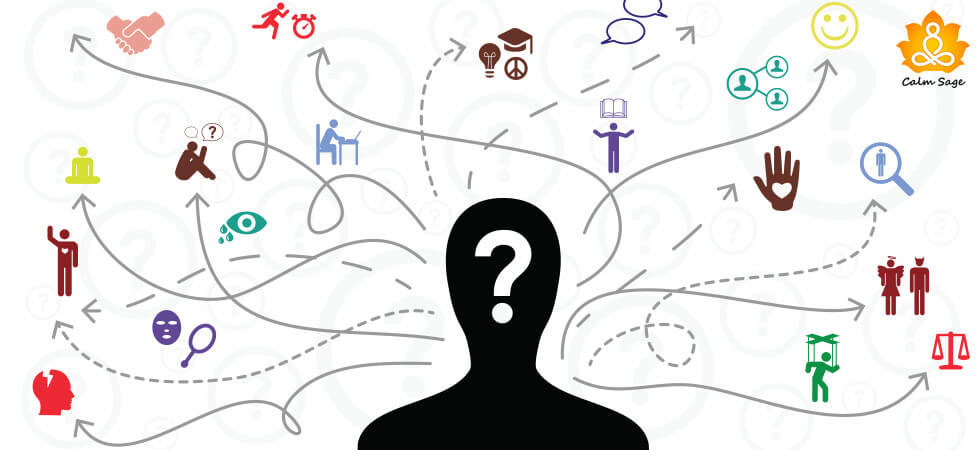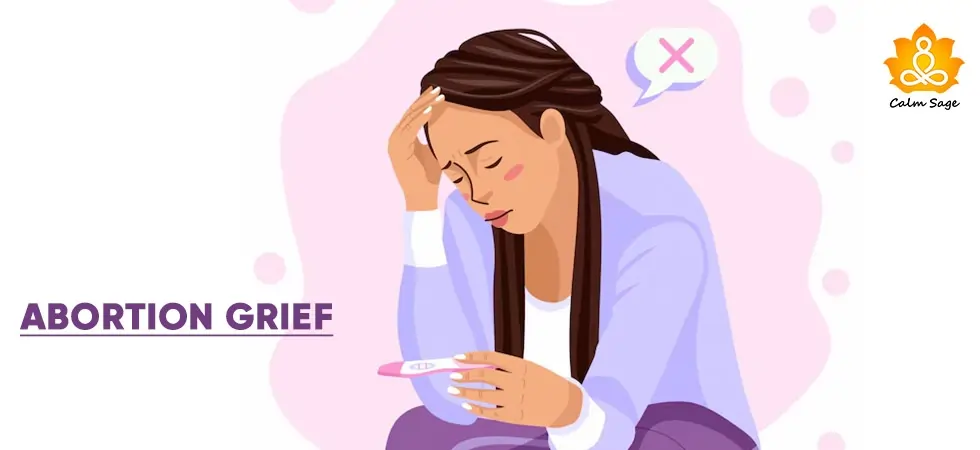How To Tell If Someone Is Faking Depression?

One of the most important things, when we talk about depression, is to be aware of its signs and symptoms. Awareness about the common (and rising) symptoms of one of the most common mental health disorders can be the first step in understanding what depression looks like.
By now, you must be aware of the few common signs including extreme sadness, loss of interest, low mood, and hopelessness. These are just a few of the most noticeable symptoms of depression.
Yet, this awareness can have some unfortunate drawbacks. What, you ask? Well, being aware of these signs can lead you to become judgmental about one’s mental health, based solely on what you see, or notice.
As someone who’s been on the receiving end of this judgment more times than I can count, I can assure you that depression is a pretty complex disorder and its symptoms can go beyond persistent sadness, low mood, and hopelessness towards life.
If I put it simply, if someone doesn’t experience or display a low mood, doesn’t mean they’re faking depression. The signs of depression are not only physical or noticeable. And if someone is experiencing persistent sadness, doesn’t mean that they’re depressed. Persistent sadness can be one of the many symptoms of other mental health conditions.
If you’re here, then you’re wondering how to tell if someone is faking depression? Well, let’s find out!
First things first, here’s what you need to know about depression;
Depression is a serious and real mental health condition that can affect a person’s daily life, work-life, social life, and relationships. Let’s not forget the impact this disorder can have on one’s emotional, mental, and physical health.
Not everyone is comfortable sharing their mental struggles openly. And you need to respect that. No matter how things change, the stigma surrounding mental health disorders still remains and prevents many from reaching out for help.
Other people may just simply don’t want to talk about their condition. When I wanted to open up, my experiences were invalidated by many saying, “You don’t look that depressed”. Trust me, if someone is smiling all the time, doesn’t mean they’re not hurting psychologically.
Depression Has Many Faces
What my experience is or has been with depression may differ greatly from yours or others. However, you need to understand that there are many types of depression and each type has different symptoms that shouldn’t be ignored.
For example, if one is struggling with dysthymia or persistent depressive disorder, their mild symptoms may never fade away. These mild symptoms can still affect their day-to-day life. Others may simply assume their symptoms as having an introverted personality.
Or, if someone has smiling depression, they might laugh and smile with their loved ones without a care on the outside but inside they might be struggling with extreme emotional distress, including thoughts of suicide or self-harm.
‘Fake Depression’ Can Be A Disorder
Before we progress further, I’d like to share with you another term, malingering. Malingering is the term used to refer to the fabrication of symptoms related to depression to avoid work or obtain something precious or needful.
Malingering is not easy to detect as many of the symptoms related to depression are easy to copy, especially when the person is completely aware of the situation.
Sometimes, people might correlate with factitious disorder and malingering. However, they both are different things. The factitious disorder includes faking symptoms of an illness meanwhile malingering includes faking symptoms of a mental health condition.
Did you know? The DSM-5 has listed malingering as a condition that requires proper clinical attention. (If left unobserved or untreated, it may develop into a severe mental health condition).
A person with factitious depression or malingering may show signs such as:
- They may exaggeratedly talk about their symptoms
- They may report their symptoms inconsistently
- They may talk to different therapists
- They may try many treatments and then report that none works
Please understand that people with malingering or factitious depression might not have symptoms of depression but they’re still struggling with a mental health disorder. Be respectful.
Other people with this disorder may experience somatic symptoms or physical symptoms that are real, not fake, such as:
- Chronic body aches
- Headaches
- Digestive issues
- Fatigue and tiredness
Causes Of Malingering Or Faking Depression
Malingering is always caused by some situational factors, like the desire of getting a reward or avoiding something unpleasant. However, the causes of malingering are based on specific contexts like legal settings or criminal activities.
The diagnosis of depression may depend heavily on one’s descriptions of symptoms and the judgment of mental health professionals. During the diagnosis, a professional may evaluate a person’s feelings to determine if they are faking symptoms or not.
One of the times, someone may fake depression because they want to avoid certain responsibilities or want to gain rewards such as a financial excuse. Other times, a person may fake depression because they want to gain some kind of psychological benefit. By doing this, they may believe that they can escape recent problems.
Psychological tests can help detect fake depression, however, other information such as interviews, medical records, psychologist’s notes, and other tests may be required to make a formal and official diagnosis.
Also Read: Why Some People Are More Prone To Depression Than Others
Symptoms of Depression
Before we move on, you need to understand that many symptoms of depression are not easy to spot. Someone may seem fine on the outside, while inside they might be experiencing serious symptoms.
Even though depression is not easy to spot, some signs can help you understand if the person is really depressed or just faking it.
People with depression:
- Have trouble thinking, memorizing, or making smart decisions
- Appear tired and lack energy
- May talk about feelings of guilt, worthlessness, or helplessness
- Appear pessimistic about life
- Have problems sleeping
- Appear restless or irritable
- Appear uninterested in things that they used to enjoy
- Have difficulty maintaining weight
- May complain of pain that may not be getting better with treatment
- Appear sad
- Appear anxious
- May talk about suicide or self-harm with fatal intent
If you’re thinking about suicide or you believe someone you know is at risk, then please immediately reach out to your local helpline number. You can also contact one of these helpline numbers:
- National Suicide Prevention Lifeline: 1800-273-8255
- Crisis Text Line: text HOME to 741741
- TrevorLifeline: 866-488-7386
- iCall: +91-9152-987-821
- AASRA: +91-9820-466-726
- Vandrevala Foundation: +91-9999-666-555
What Can You Do if Someone is Faking Depression?
Unfortunately, when you see someone with depression smiling and acting all right, you can conclude that they are fine or are just ‘faking it’. However, when we talk about depression, the noticeable symptoms are not the only ones you should pay attention to.
Remember, never judge a book by its cover. The cover may appear fine but the pages inside might be coming apart at the seams.
If you can’t see the symptoms of depression doesn’t mean the person isn’t depressed and if you can see the exaggerated signs of depression, it doesn’t mean the person is depressed.
To determine if your loved one is faking depression, you need to pay attention to the symptoms you can’t see, namely:
- The sleeping pattern
- Struggling to find motivation
- The loss of concentration on their daily tasks, and so on.
Faking depression is possible and to some extent, ‘faking depression’ can also be considered a factitious disorder.
The stigma around mental illnesses is still there and preventing people with real struggles finds the help they need to get through the tough times. The opinion that someone is ‘faking it’ or invalidating their symptoms plays a huge role in fueling the stigma.
Faking depression is an actual disorder and while it may affect your loved ones, it is important to note that people who truly struggle with depression live a stressful and difficult life.
Rather than honing in on people with ‘fake depression’, you can try to focus on being a support pillar for them. As I’ve said many times, if someone is faking depression doesn’t mean that they are not struggling with a mental health condition. Malingering is still a mental health disorder that shouldn’t be ignored.
Encourage your loved ones to seek the support they need to get through. Instead of self-diagnosing or judging, leave the evaluation to the professionals and focus on being supportive of your loved one.
Read this story to understand how deeply depression can affect someone’s mental health.
Author’s Words
Based on the facts, faking depression may be done to gain or avoid consequences. It is not always true that a person is faking depression.
Therefore, before you judge someone based on their activities, Calm Sage strongly recommends checking with a certified mental health provider. It is always better to check with a registered professional instead of seeking advice from peers.
Remember, the symptoms your loved one is showing – fake or not – may be linked to other mental health disorders or personality disorders. Before you judge someone, make sure you eliminate the possibilities of other disorders, illnesses, and causes that may lead a person to exaggerate their symptoms.
To connect with a professional mental health counselor, you can sign up below with BetterHelp.
I hope this information helps to detect if someone is faking depression and what you can do to help. For more such wellness-related content, follow Calm Sage on all social media platforms.
If you found this article helpful, let us know in the comments below or you can drop us an email at info@calmsage.com.
Thanks for reading! Take Care!
More Interesting Readings:





















my friend has fake depression, but he treats me as a great friend, should i forgive him or hate him?
This seems like such a good idea, will have to take a look at it!
Never thought depression can be faked thanks for sharing this valuable information